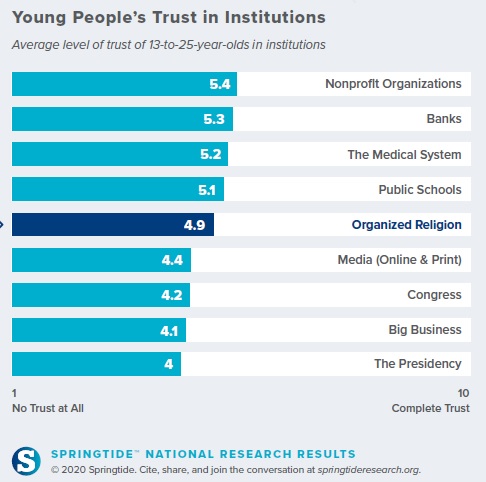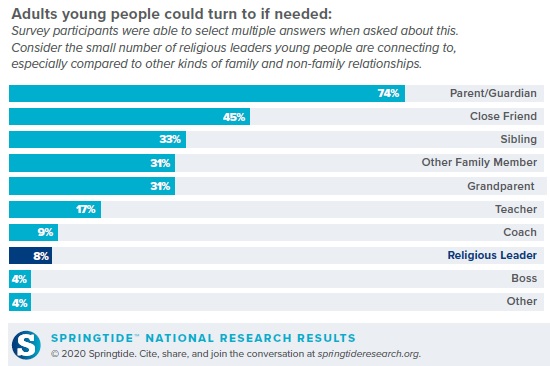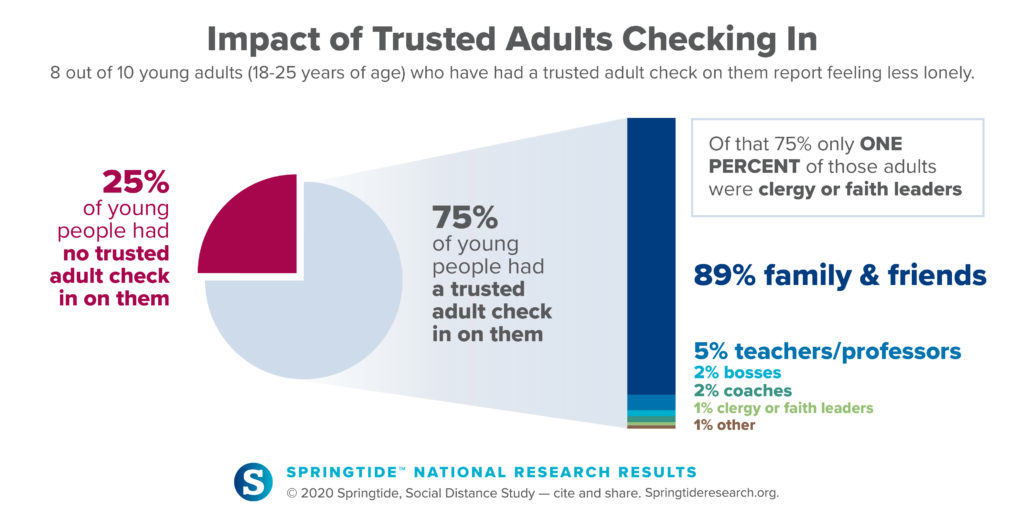
By Kevin Singer
“Communicating is hard to do when one texts and tweets more than one actually talks,” one reader commented on a recent op-ed I wrote about Gen Z, the generation born roughly between 1995 and 2010.
Perhaps you can relate to this reader’s frustration. Young people today don’t operate in ways that older adults are accustomed to or fully prepared for. Rather than conforming to tradition, young people today are quite content blazing their own trail.
Yet, Gen Z already makes up over 20% of Americans and is now the largest generation worldwide, accounting for 2.5 of the 7.7 billion people on earth. If pastors hope to be effective stewards of the Great Commission over the next several decades, it’s critical they understand what makes this formidable generation unique.
If pastors hope to be effective stewards of the Great Commission, it’s critical they understand what makes Generation Z unique. Click To TweetWhen it comes to faith, Gen Z defies the categories that leaders and researchers have used for decades to understand religiosity. When it comes to what they value, relationships are far more important to Gen Z than institutions. When it comes to relationships, Gen Z places a higher premium on trust and transparency than titles, accolades, or expertise.
Gen Z defies faith categories
For decades, leaders and researchers have relied on terms like religiously “affiliated” and “unaffiliated” to understand how people are approaching matters of faith. The affiliated crowd, it is assumed, maintains a relatively secure connection with a religious institution (e.g. church, synagogue, or mosque), while the unaffiliated crowd is assumed to be quite comfortable discussing anything but religion at the dinner table.
Gen Z, we discovered, does not conform to these assumptions. For example, while 61% of young adults said they affiliate with a religious tradition or denomination, over 50% of these same young adults also report little to no trust in religious institutions, rating trust at a 5 or below in a scale of 1-10.
This means that, incredibly, over half of young people who claim a religious affiliation have little trust in the very religious institutions with which they identify.
Over half of young people who claim a religious affiliation have little trust in the very religious institutions with which they identify. Click To TweetFurthermore, while it is true that Gen Z is contributing to the growth of religious “nones” in America—a whopping 40% indicated they’re atheist, agnostic, or nothing in particular—over 30% of these same young adults report that they attend worship services, and nearly the same percentage say they try to live out their religious beliefs in their daily lives.
Rather than being devoid of spiritual questions and curiosities, 60% of those unaffiliated with a religious tradition or denomination say they are at least slightly spiritual.
Gen Z values relationships over institutions
We get a better look at the religious lives of young people by examining their relationships rather than their affiliation status. This is because Gen Z values relationships far more than institutions. In fact, Gen Z on the whole is distrustful toward the institutions that are prominent in our daily affairs, including banks, the medical system, public schools, congress, big business, and organized religion.

Gen Z’s distrust toward religious institutions is not particularly surprising when you consider that just 8% of young people say there’s a religious leader they can turn to if needed. Without opportunities to form trusting relationships with religious leaders, many young people are left with examples of religious leaders who make the news for modeling the kinds of behaviors they detest.
Without opportunities to form trusting relationships with religious leaders, many young people are left with examples of religious leaders who make the news for modeling the kinds of behaviors they detest. — @kevinsinger0 Click To TweetGen Z prizes transparency and care
Springtide discovered that when it comes to relationships, and especially those with older adults like religious leaders, Gen Z places a high premium relational authority, or, an approach to sharing wisdom and expertise that is marked by listening, transparency, integrity, and care.
For context, consider that others might place a higher premium on institutional authority, where trust is bound up in the institutions that one represents along with the goals and purposes that drive those institutions.

Practically speaking, this means that young people need to feel cared for before they can be receptive to the influence or authority of others in their lives. They want to know that their personhood is the priority, not a point you’re making or a program you’re pushing.
Young people want to know that their personhood is the priority, not a point you’re making or a program you’re pushing. — @kevinsinger0 Click To TweetAs a case in point, 65% of young people agree with the statement: “A person’s expertise doesn’t matter if they don’t care about me,” while 83% told Springtide they are more likely to take advice from someone who cares about them.
Reaching the young people in your community
Gen Z has been called the loneliest generation. In a society that’s increasingly marked by impersonal bonds and transactional exchanges, young people are desperate for relationships of care. In that vein, pastors and ministry leaders are needed who understand that young people need deep, familiar connection before feeling receptive to the influence or guidance of others.
The truth is, there may be a pastor in a young person’s life, but they may not be a trusted adult. Even if the pastor is a trusted adult, this doesn’t mean they are always effective at cultivating deep, meaningful relationships with young people that have lasting impact.
A pastor recently told me that during this difficult season, they are more likely to check in on their elderly church members than their younger members. Young people are noticing; just 1% indicated that a religious leader checked in with them personally as pandemic shutdowns began.

During this messy season, it may be that pastors eager to connect with young people should start by focusing on the little things. Talk with them and really listen. Remember their birthday or a particular milestone in their life, or perhaps their favorite movie. Share experiences by telling stories about your life in ways that encourage them to share.
Even these small gestures of care aren’t a given just because someone works with young people. Instead, reaching Gen Z requires a commitment to the flourishing of the young people in your spheres.
Just 1% of young people indicated that a religious leader checked in with them personally as pandemic shutdowns began. Click To TweetRemember: Young people want to know you, not just the institution you represent or the goals and purpose that drive that institution. Don’t assume your expertise or institutional authority has done the heavy lifting when it comes to building connections with them. Your authenticity, vulnerability, and transparency will be what creates trust and influence in the relationship.
At a time when Gen Z is so readily misunderstood and dismissed, pastors can make a difference by being studious of and adaptive to their unique beliefs, fears, and hopes. This is what the gospel and discipleship are all about: Meeting people where they are.
Young adults may be enthusiastic about their faith, but they aren’t eager to come to church. They may be sitting in church, but not enthusiastic about the faith. Either way, it’s likely they would welcome an opportunity to get to know you. Sending a few texts would be a good place to start.

Kevin Singer
Kevin is head of media and public relations for Springtide Research Institute and teaches religious studies courses at community colleges. He was involved with North American Mission Board church planting from 2009-2014.







